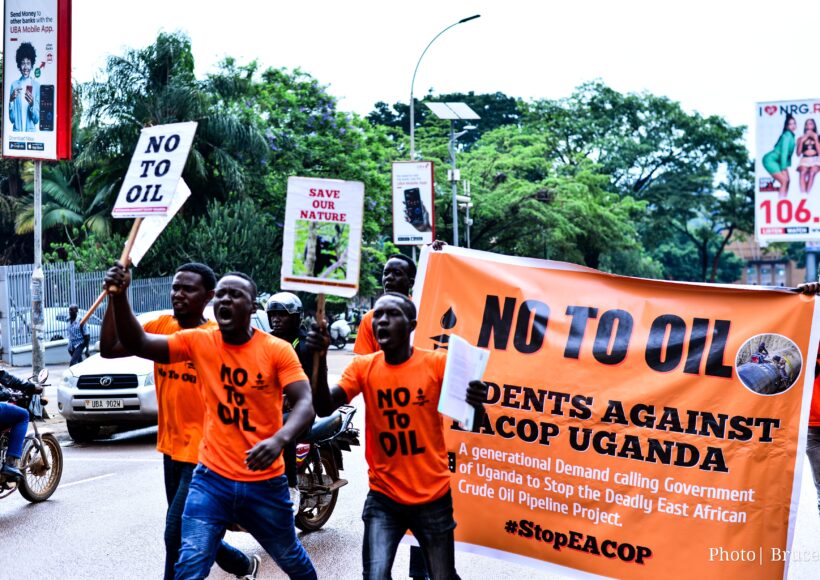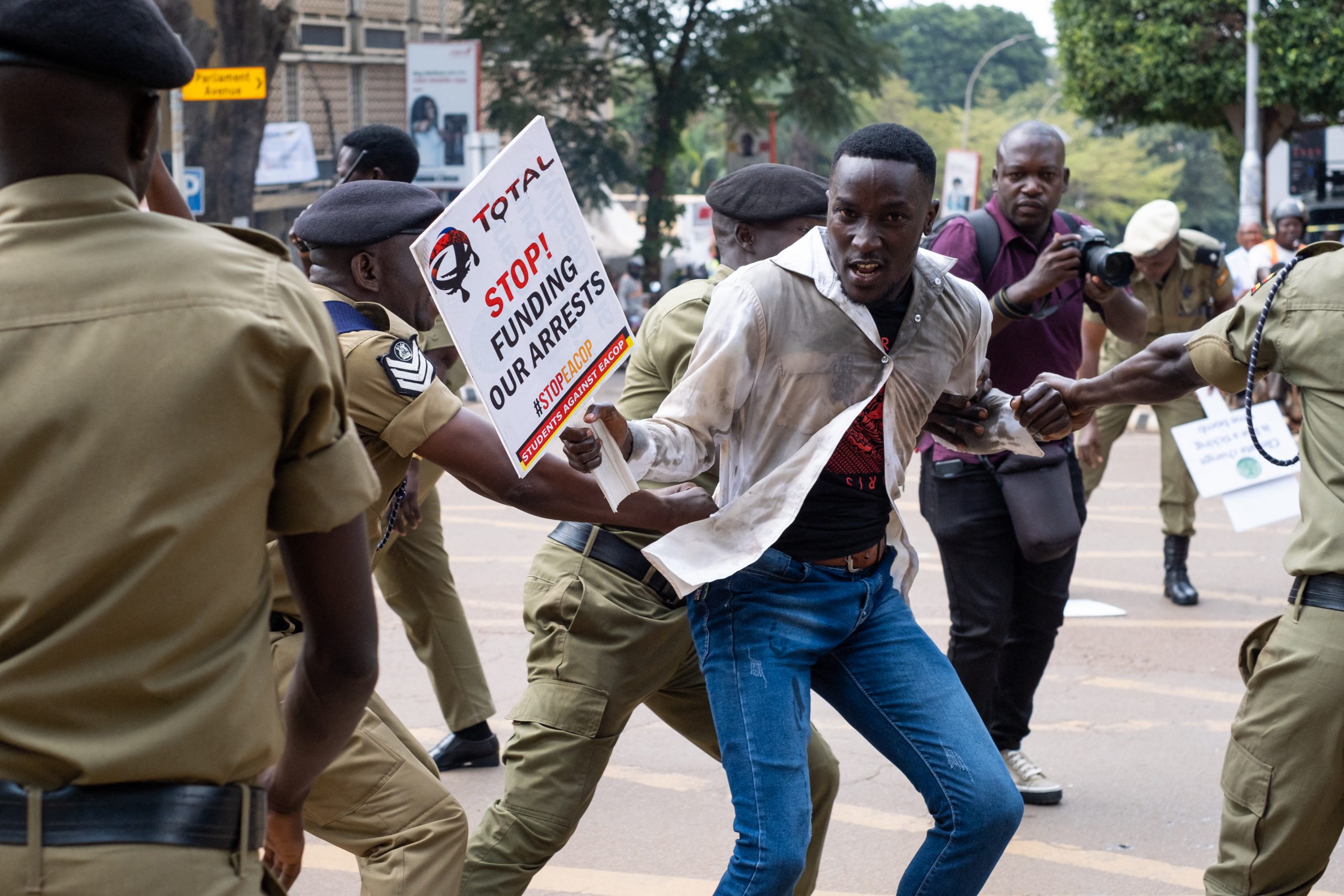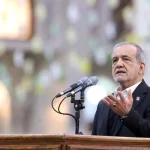Dozens of student activists were arrested on Friday as they tried to march to Uganda’s parliament to deliver a petition against a controversial multi-billion-dollar oil development scheme, police and their lawyers said.
The students were protesting a huge project headed by French oil giant TotalEnergies which involves drilling for oil in Uganda and sending the crude to Tanzania for export.

Environmental groups say it is having dire consequences for local communities and the environment as drilling is going on in Murchison Falls National Park, the largest protected area in Uganda.
“We have arrested a total of 47 suspects,” Uganda’s police spokesman for the Kampala metropolitan area, Luke Owoyesigire, told AFP, adding that they had been taken to two police stations in the capital.
He said two were arrested outside parliament and had been charged with “inciting violence”.

The remainder, who were planning to march to the site but were blocked by police, have yet to be charged.
A lawyer for the students, Samuel Wanda, confirmed the multiple arrests.
“This (march) was meant to deliver the petition to parliament but police arrested the protesters on the way,” he told AFP.
The protesters were calling for international financiers not to lend money for the oil project, saying it was destroying the environment and the livelihoods of local communities, and that they should instead fund renewable energy.
TotalEnergies and the China National Offshore Oil Corporation (CNOOC) are drilling in Lake Albert, which has an estimated 6.5 billion barrels of crude, including about 1.4 billion barrels that are currently considered recoverable.
The crude will be shipped through the East African Crude Oil Pipeline, a 1,443-kilometre (900-mile) heated pipeline that will run from the oilfields in northwestern Uganda to Tanzania’s Indian Ocean port of Tanga.

TotalEnergies has a 62-percent stake in the pipeline, with Ugandan and Tanzanian state-owned oil companies holding 15 percent each and CNOOC eight percent.
Uganda’s first oil is expected to flow in 2025 — almost two decades after the reserves were discovered — and the project has been hailed by President Yoweri Museveni as an economic boon for the landlocked country where many live in poverty.
TotalEnergies says those displaced by the project have been fairly compensated and measures have been taken to protect the environment.
gm-txw/kjm
© Agence France-Presse






